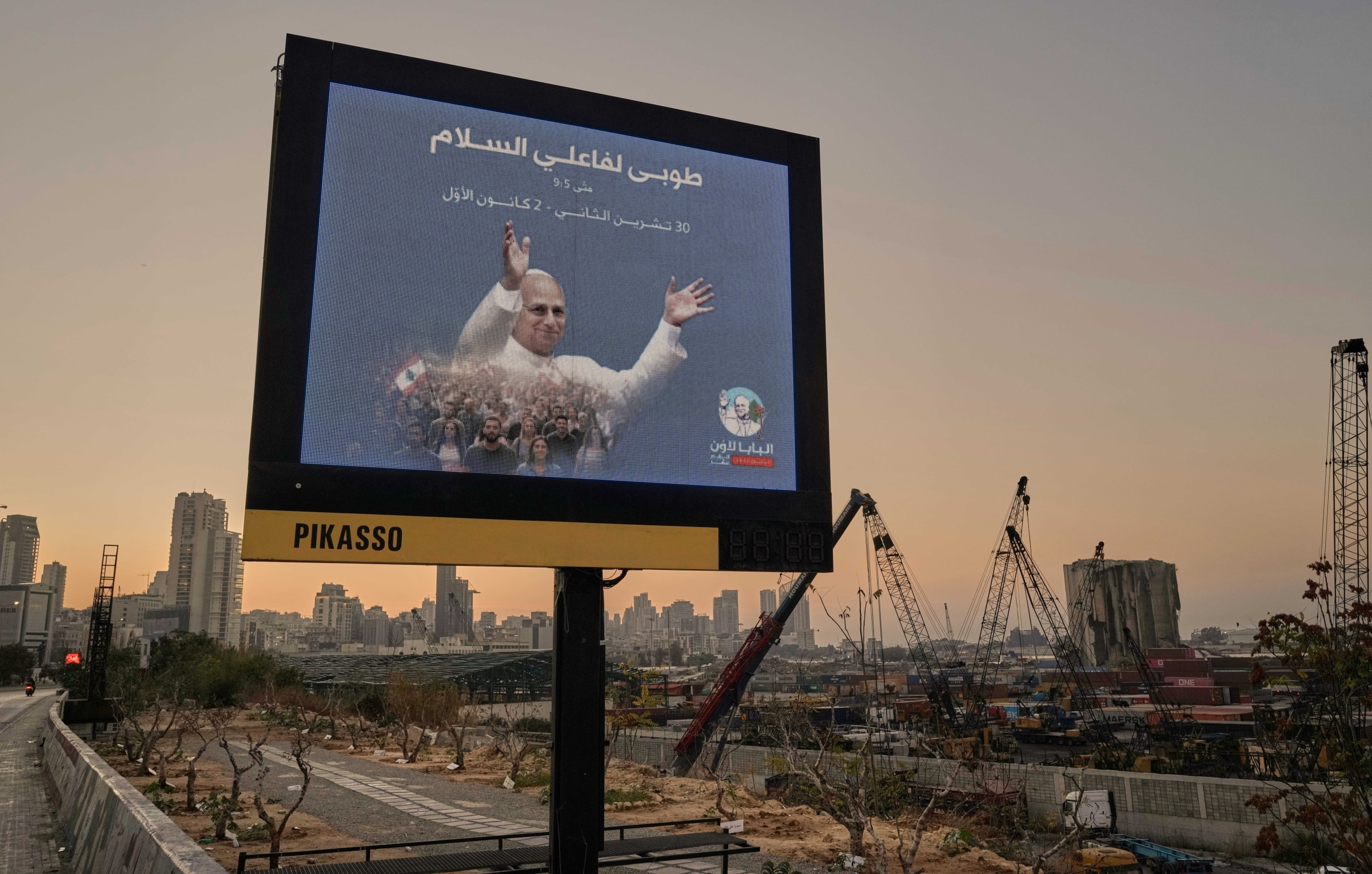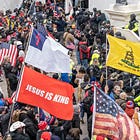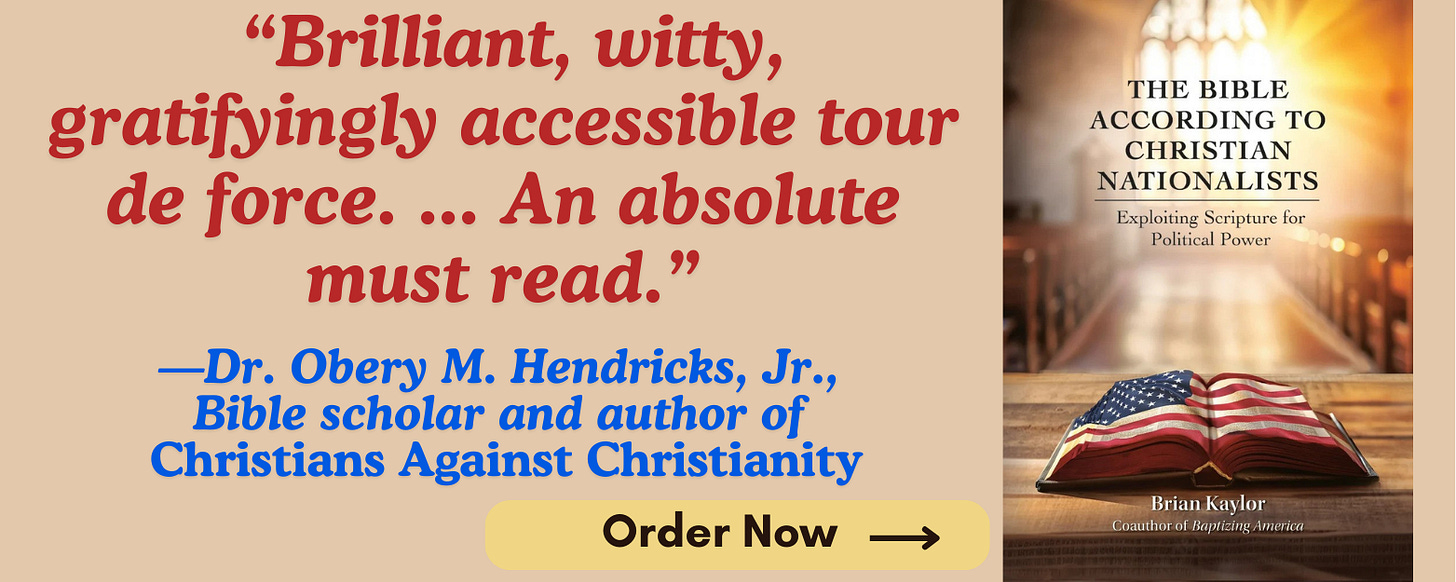Weekly Roundup: Nov. 21
Here’s the weekly roundup from A Public Witness. This week we published a piece about a special Advent focus and a look at the historical and present theological tensions with Christ the King Sunday.
Support our journalism ministry by upgrading to a paid e-newsletter subscription today!
Top 5 at wordandway.org
Two Tales of One City. Sarah Blackwell reflected on the tragic juxtaposition of running in the beautiful Charlotte Marathon while ICE agents racially profiled and terrorized neighbors over the weekend.
American Baptist Leaders Praise Clergy Protesting ICE. Brian Kaylor reported on a new statement from the American Baptist Home Mission Societies.
Why Trump’s Immigration Crackdown May Make America Less Christian. Bob Smietana reported on the contradiction between Donald Trump promising to restore Christianity and seeking to deport immigrants.
Democrats Urge Trump Administration to Keep Banning Churches From Endorsing Politicians. Jack Jenkins wrote about an effort to preserve the IRS’s political campaign activity ban.
Review: Christianity and the Qur’an. Robert D. Cornwall reviewed Christianity and the Qur’an: The Rise of Islam in Christian Arabia by Gabriel Said Reynolds.
by Brian Kaylor, Word&Way Editor-in-Chief
The New York Times published an interview with its own two religion reporters. This was a great idea, helping explain the world of religion and giving readers a peek into how they make reporting decisions. It’s an interesting conversation with two excellent religion reporters — Elizabeth Dias and Ruth Graham — who I always read (and who are often highlighted in our weekly roundups).
They offer some great thoughts in the interview, but there’s also a concerning answer. Both Dias and Graham explained they don’t use the term Christian Nationalism. It’s troubling that both religion reporters at the national paper of record still won’t use that term in the year of Project 2025. They’re missing out on a massive angle for understanding religion in the U.S. today.
It’s true, as Graham noted, the term largely came from academics before more popular usage (although there are older uses of the term from adherents). But the academic foundation’s actually helpful because there’s lots of research to explain what Christian Nationalism is and show how it operates as a worldview. That is, it’s not just a made-up idea. And her complaint that asking 10 people would bring 10 definitions of Christian Nationalism is odd. That might suggest one asked the wrong 10 people. Also, the same thing could be said about the term “evangelical” or other faith terms the New York Times uses (including the word “religion” itself). Part of the work of journalism is to sort through all that and help explain terms.
Christian Nationalism is no longer just an academic term. Multiple denominations have passed statements using it, so it’s also a faith declaration now. Which is part of the history of religion: new ideas/terms coming into usage.
When people talk about bias in journalism, they often focus on how stories are framed. But a bigger bias can be what gets covered (or not) in the first place. So it’s concerning that both New York Times religion reporters don’t understand Christian Nationalism. Again, both are great reporters; I just wish they were better on this. And while there are lots of great places one could start to learn about Christian Nationalism, I’m biased toward two books (here and here).
Other News of Note
The Department of War used a made-up story about George Washington and prayer to push a Christian Nationalist message.
The Presbytery of Chicago, a regional body of the Presbyterian Church (U.S.A.), issued a statement urging Christians to challenge ICE “with creative action and with stubborn hope.”
Catholic clergy sued the Department of Homeland Security for denying access to pray with and offer communion to detainees at the ICE facility in the Chicago suburb of Broadview.
Catholics in Miami led a vigil outside an immigration courthouse to pray for immigrants facing deportation and remember those who have died in detention.
Tom Homan, Trump’s “border czar,” insisted the Catholic Church is “wrong” after bishops criticized the administration’s treatment of immigrants.
“We’re seeing a current administration bastardize faith almost every day. They used the Lord’s Prayer in a propaganda video for what they’re now calling the Department of War. That should have had every single evangelical’s bells and whistles and alarms going off in their head: this is sacrilegious.” —Rev. Justin Douglas, a Democratic candidate for Congress, in a London Guardian piece about the rise of White clergy running as Democrats.
After conservative pundit Megyn Kelly attempted to defend Jeffry Epstein by suggesting he wasn’t really a pedophile but just into 15-year-olds, Christa Brown responded with her own story of being repeatedly raped by a Southern Baptist pastor as a teenager.
As the Catholic Church continues to reckon with its past actions against Indigenous peoples, the Vatican returned 62 artifacts to Indigenous peoples in Canada.
For the first time, the Baptist General Convention of Texas (a state Southern Baptist group) elected an ordained clergywoman as president. And Mercer University (a Baptist school in Georgia) named its first female president.
Ruth Graham of the New York Times reported on the rise of conservative young men in the U.S. converting to Orthodox Christianity.
Maurice DuBois of CBS News reported on what it means for Christianity that more Americans attend nondenominational churches.
Brian Kaylor appeared on the Good Faith Weekly podcast with hosts Mitch and Missy Randall to talk about The Bible According to Christian Nationalists:
Photo of the Week

Thanks for reading!






